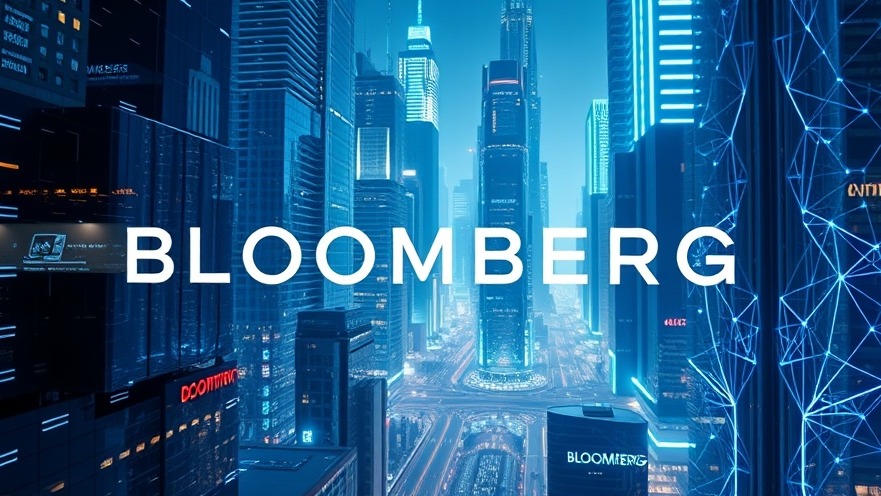
The Green Market Revolution: A Financial Paradigm Shift
The forthcoming decades promise significant transformations in how economies operate, particularly within the burgeoning green market sector. As highlighted in a recent forecast by Forrester, global spending on green initiatives is expected to soar to an astounding $326 trillion by 2050. This unprecedented figure underscores not just a shift in consumer consciousness but a fundamental reconfiguration of market dynamics.
Understanding the Dynamics of Green Investments
In stark contrast to earlier sustainability-focused initiatives, this green market revolution is primarily driven by economic incentives rather than mere ethical considerations. Business investors, both individual and institutional, are increasingly recognizing the financial viability of eco-friendly investments. With only a small percentage of consumers currently identifying as "non-greens," the demand for sustainable products and services is set to explode as environmental concerns become more pressing in the light of climate crises and resource scarcity.
A Closer Look at Spending Categories: Where Will the Money Go?
The Forrester report delineates six major categories projected to lead this spending surge:
**Transportation Innovation:** This category stands out, with the largest projected cumulative spend coming from electric vehicle sales and the electrification of transportation systems. By 2030, it is anticipated that over one-third of new cars sold will be electric, representing a massive shift in consumer purchasing behavior.
**Product Manufacturing Transformation:** About 28% of the overall investment will be funneled into improving product design and materials. This includes advancements in sustainable packaging and the development of circular economy textiles — efforts that companies like H&M are already pursuing to enhance sustainability while mitigating supply chain challenges.
**Adaptation Efforts for Climate Change:** More than half of the projected investments will focus on technologies that mitigate the already inevitable effects of climate change. These include innovative solutions like carbon capture and soil carbon sequestration. As these technologies evolve and their costs decline, expect widespread adoption.
**Culinary Changes:** The food industry is not left behind in this revolution. With an increasing focus on sustainable food sources and farming practices, investments in alternative proteins and organic farming methods are expected to rise significantly.
**Energy Solutions:** Companies will also invest heavily in renewable energy sources and energy-efficient systems, contributing to a shift away from traditional fossil fuels.
**Intergovernmental Partnerships:** Lastly, the competition among nations for leadership in the green economy will spur government initiatives that support businesses aiming for sustainable practices.
Future Predictions: The Promise of the Green Economy
The forecasted $326 trillion investment is not an isolated figure. It represents a broader trend towards sustainability across various industries. This revolution is not merely reactive; it is a proactive response to the challenges posed by climate change, resource depletion, and an increasingly eco-conscious consumer base.
Innovations in technology and a commitment to sustainability have the potential to drive down costs while enhancing product quality. For instance, electric vehicles are not just seen as environmentally friendlier options; their advanced features, such as improved reliability and better acceleration, add to their appeal.
Investing in the Future: Why Individuals and Businesses Should Care
For individual and business investors, the implications of this green market revolution are monumental. Merging sustainability with profitability is no longer an oxymoron; it's an economic strategy. As consumers’ demands evolve, the businesses that invest early in sustainability will not only fulfill ethical responsibilities but also secure lucrative market share.
The time to act is now. Whether through investment in sustainable products or aligning business strategies with environmental imperatives, the opportunities are plentiful. Embracing this green revolution holds the promise of not just financial gain but the chance to drive meaningful change in addressing global challenges.
Final Thoughts: Riding the Green Wave
Overall, the green market revolution will reshape investment landscapes, presenting both challenges and vast opportunities. As awareness grows and climate impacts intensify, the transition to sustainable practices will become not only beneficial but essential for all players in the market.
With this shift in mindset, investors must be ready to participate actively in shaping an eco-friendlier future, which could be one of the most rewarding investments of their lives.
As we move closer to 2050, reflecting on our choices today could be the difference between thriving in a green economy or being left behind. Stay informed, invest wisely, and embrace sustainability.
 Add Row
Add Row  Add
Add 




Write A Comment